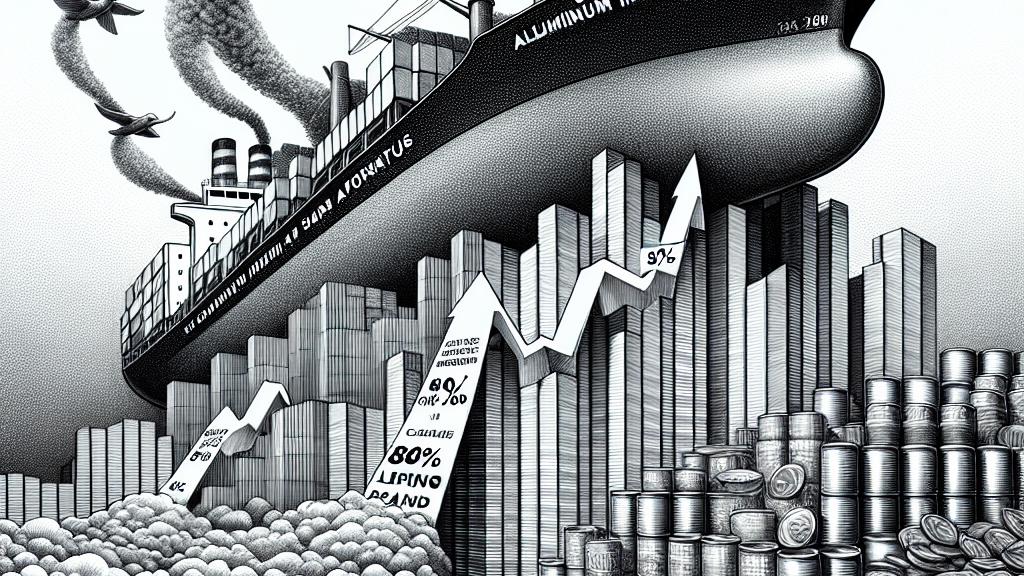Understanding How Tariffs Affect Steel and Aluminum Stocks
Overview
- President Trump's tariffs have dramatically skyrocketed steel and aluminum stocks, reigniting investor enthusiasm.
- Experts warn that these tariffs may lead to escalating prices for everyday consumers, affecting their wallets.
- The long-term economic impacts could inflict unexpected burdens on the overall U.S. economy, requiring vigilance.

Impact of Trump's Tariff Announcement
In a bold and contentious move, President Donald Trump revealed a sweeping 25% tariff on all steel and aluminum imports entering the United States. This announcement sent ripples through the financial markets as stocks in companies like U.S. Steel and Alcoa Corp soared—upwards of 8% and 4% respectively—as investors rallied in anticipation of bolstered domestic production. However, while this surge may paint a rosy picture for manufacturers, the underlying reality is more complex. The U.S. is alarmingly reliant on foreign imports for aluminum; in fact, over 80% of our aluminum needs are sourced from abroad, with Canada supplying nearly 70%. This heavy reliance unveils potential complications, particularly that American consumers might face mounting costs as companies are forced to adjust prices to accommodate the new tariffs.
The Consumer Burden
While the immediate effects seem to favor American producers, it’s essential to spotlight who ultimately pays the price: consumers. Economists and analysts have consistently shown that tariffs inevitably lead to price increases on various goods, impacting daily life. For instance, after the imposition of a previous tariff on washing machines, prices surged by around 12%, which amounted to a staggering $1.5 billion annual cost for shoppers in the U.S. Now, imagine the newly proposed aluminum tariff and envision how that could translate into higher costs for everything from cars to your favorite soft drinks. Just picture walking into a store, only to find that your go-to snack has taken a price jump. Clearly, the economic burden shifts to consumers, affecting their shopping habits, families' budgets, and overall quality of life, with every dollar counting more than ever.
Long-Term Economic Consequences
As we peer into the future, the long-term consequences of these tariffs paint an alarming and convoluted picture. While advocates claim that tariffs secure American jobs, the evidence from economic studies suggests a trend against growth and innovation. Without the pressure of competition from foreign markets, domestic firms may become stagnant, failing to enhance product quality or maintain competitive pricing. Moreover, history indicates that retaliatory tariffs from countries like China and Canada could follow, which was evident in past trade disputes. These nations reacted to U.S. tariffs by imposing their own taxes on American exports, leading to significant revenue losses for U.S. producers. It’s a compounding cycle, beginning with tariffs, resulting in retaliation, and potentially squeezing the American economy tighter. Therefore, even though the allure of immediate benefits tantalizes, the broader narrative regarding tariffs unveils hidden costs and long-term challenges that no one should underestimate. It's crucial for consumers and policymakers alike to remain vigilant and informed.

Loading...